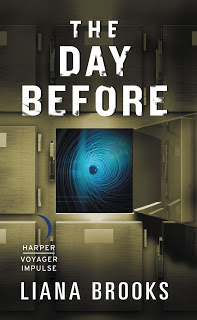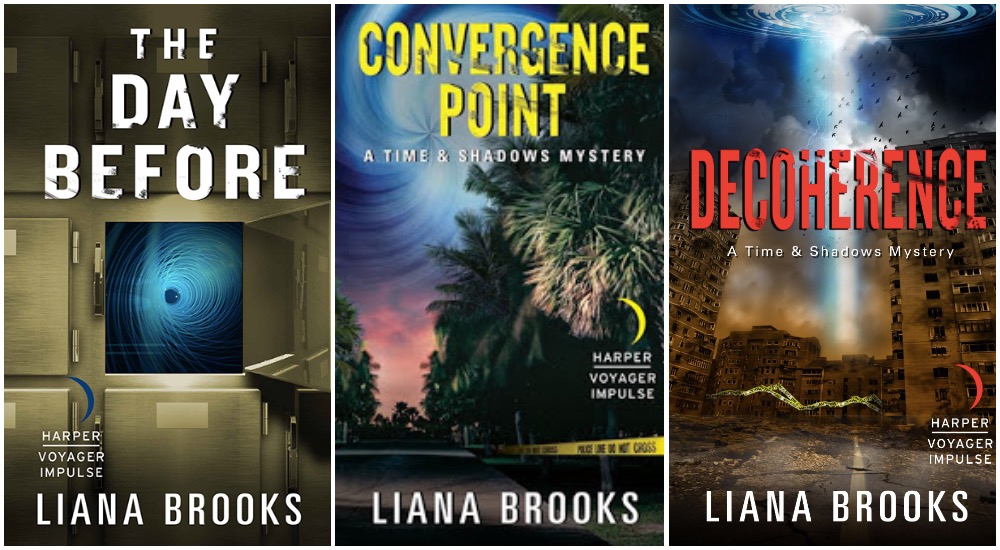Originally published on Savvy Authors in 2015.
 Back when I had just started writing with the intent to publish, around 2006, I printed out a copy of my very first novel and shared it with a friend who had a good taste for books. She was the kind of friend you have in your twenties: flaky, insincere, and negative. In your early twenties you think any attention is good and you let a lot of negative people to clutter your life. Or at least I did. Still, at that point I trusted her opinion and I shared my first novel with her.
Back when I had just started writing with the intent to publish, around 2006, I printed out a copy of my very first novel and shared it with a friend who had a good taste for books. She was the kind of friend you have in your twenties: flaky, insincere, and negative. In your early twenties you think any attention is good and you let a lot of negative people to clutter your life. Or at least I did. Still, at that point I trusted her opinion and I shared my first novel with her.
“You realize,” she said, “this will never get published. Getting a book published in New York is nearly impossible.” And she handed back the four hundred pages I’d printed at home.
Those pages sat by my bed with a red pen for months. I wanted to edit and send them to an agent, but I was afraid she was right. What if no one wanted my book? What if… perish the thought… I failed???
I couldn’t bear the thought, so I tucked the novel under my bed and started a new one. I researched the publishing industry. I read every single blog post on the new defunct Miss Snark blog. I joined an online writing group. I wrote the next novel and shared my favourite scene with the writing group.
They hated it.
They shredded it.
They didn’t understand my vision or how poignant and awesome this scene would be with the right mood lighting and an epic soundtrack. Or maybe I was just a young, raw writer with a big imagination and not enough practice telling a story well. Either way, the manuscript was dropped. I quit writing it and moved on.
Several more novels died in the same fashion, murdered by a combination of high hopes and rejections.
What changed everything was an off-hand comment to my critique partner when I handed her novel number I-wasn’t-even-counting. “What happens if this isn’t The One?” she asked.
I shrugged. “It’s fine. I have two short stories out and I’m almost done with another novel. It doesn’t matter if this one fails or not.”
And that was the magic trick. Although the novel wound up under the bed for other reasons, it didn’t die of rejection because I had a plan for failing.
The secret I didn’t know when I started writing was that failure is a part of success. Failure isn’t a setback, it’s a stepping stone. It isn’t the end of the road, it’s a curve in the path. Once I started planning for the inevitable failures and rejections my whole process changed.
Watching other writers over the years I realized we were all falling into four groups based on failure.
First there were the people who had a dream but no idea of how to achieve it. They were the ones who talked about writing, but never wrote anything down.
Then there were the people who had dreams and, like I had in my early years, shied away from any perceived failure. If it wasn’t perfection, it was failure. Any poor review was a failure. Any rejection from an e-zine was the end of the world. The people in the second group either outgrew this phase, or quit writing in despair. This isn’t a place you can build a career in.
The third set of people are able to deal with slight setbacks. They know rejections happens and they accept the occasional bad review, but if they’re agent quits, editor leaves, or publisher rejects their next manuscript they fall apart. Not without reason. Those are some pretty major setbacks.
But the smart authors fall into the fourth category, they plan to fail. They know no plan survives first contact with the enemy and before they even query their novel they know exactly what they will do in any contingency. They have a small press back up plan for their Big Press novel. They know how to self-publish if they need to go that route. They know which publishing option is right for their book, and they know how to market any book in any situation.
 Planning to fail means these authors don’t waste time moping and wondering what to do next. They can switch gears in a few minutes and move forward with the other plan.
Planning to fail means these authors don’t waste time moping and wondering what to do next. They can switch gears in a few minutes and move forward with the other plan.
The expectation also provides a much needed emotional buffer. Authors tend to be emotional people. We need to be. Empathy and compassion allow authors to write characters with real emotion that draw out sympathetic emotions from readers. While that’s a boon while writing, it can result in a hot mess when reading reviews. But only if the author is expecting nothing but paeans of praise. If they’re already mentally prepared for the inevitable bad reviews they don’t hurt nearly as much.
Parallel to all of this is a plan for success. Every author daydreams about being the next JK Rowling or Stephen King but few can even articulate what that means.
An author who wants to build a successful career is going to plan ahead, accept failure as the gift it is, and always be ready for the next turn in the road. Publishing no longer moves at a glacial pace. You can go from unagented to agented-with-a-three-book-deal-to-a-major-press in under three months. You can go from unheard of aspiring talent to sensation overnight. If you don’t want those changes to ruin your life, you’ll make a plan for every scenario.
With luck, all you’ll ever need is the plans for major successes. But, if failure comes in any form, you’ll be prepared to tackle the problem and turn a rejection into another stepping stone to acceptance and success.



